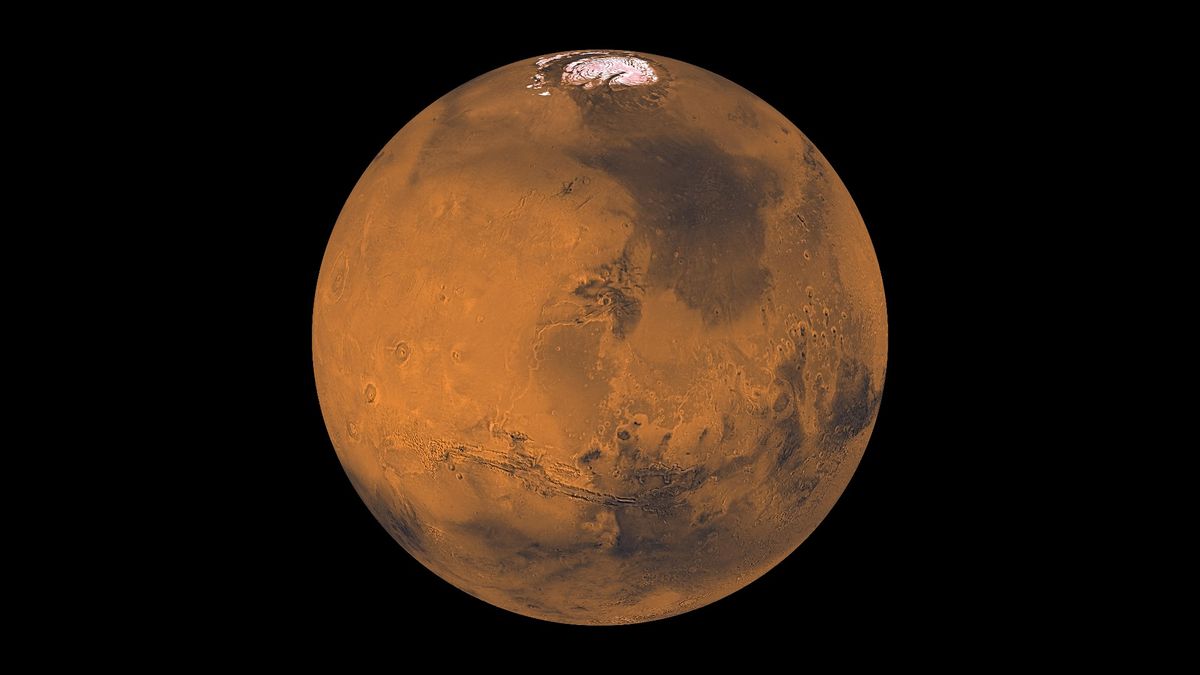
Mars, often called the Red Planet, has fascinated humans for centuries. Its striking red appearance, caused by iron oxide on its surface, makes it stand out in the night sky. But what do we really know about Mars? Is it just a cold, barren wasteland, or does it hold secrets waiting to be discovered? From its towering volcanoes to its deep canyons, Mars is a planet of extremes. Did you know that Mars has the largest volcano in the solar system? Or that it experiences seasons just like Earth? Join us as we uncover 30 intriguing facts about Mars that will blow your mind. Whether you're a space enthusiast or just curious, these facts will give you a new perspective on our neighboring planet.
Mars: The Red Planet
Mars, often called the Red Planet, has fascinated humans for centuries. Its distinct red hue and proximity to Earth make it a prime candidate for exploration. Here are some intriguing facts about Mars that might surprise you.
- Mars is the fourth planet from the Sun.
- Named after the Roman god of war, Mars has a reddish appearance due to iron oxide, or rust, on its surface.
- The planet has two moons: Phobos and Deimos.
- Mars has the largest volcano in the solar system, Olympus Mons, which is about 13.6 miles high.
- The planet's atmosphere is 100 times thinner than Earth's and is composed mostly of carbon dioxide.
- Mars has seasons similar to Earth because of its tilted axis.
- The average temperature on Mars is about minus 80 degrees Fahrenheit.
- Mars has the largest dust storms in the solar system, which can last for months and cover the entire planet.
- The planet's surface gravity is only 37% of Earth's, meaning you could jump nearly three times higher on Mars.
- Mars has polar ice caps made of water and dry ice (frozen carbon dioxide).
Water and Life on Mars
The search for water and life on Mars has been a major focus of scientific research. These facts highlight some of the discoveries and theories about water and potential life on the Red Planet.
- Evidence suggests that liquid water once flowed on Mars' surface.
- In 2018, scientists discovered a lake of liquid water beneath Mars' south polar ice cap.
- Mars rovers have found minerals that form in the presence of water, such as hematite and clay.
- The Curiosity rover discovered organic molecules in ancient Martian rocks, hinting at the possibility of past life.
- Methane has been detected in Mars' atmosphere, which could be a sign of microbial life.
- Mars has recurring slope lineae, dark streaks that appear to be caused by flowing salty water.
- The planet's thin atmosphere makes it difficult for liquid water to exist on the surface today.
- Some scientists believe that microbial life could exist in subsurface environments on Mars.
- Mars' soil contains perchlorates, which can be toxic to humans but might be used by certain microbes.
- Future missions aim to bring Martian soil samples back to Earth for analysis.
Mars Exploration
Humanity's quest to explore Mars has led to numerous missions and discoveries. These facts cover some of the key milestones in Mars exploration.
- The first successful flyby of Mars was by NASA's Mariner 4 in 1965.
- Viking 1 and Viking 2 were the first spacecraft to land on Mars and send back images in 1976.
- The Mars Pathfinder mission in 1997 included the first successful rover, Sojourner.
- The Opportunity rover, which landed in 2004, operated for nearly 15 years, far exceeding its expected lifespan.
- The Curiosity rover, which landed in 2012, continues to explore Mars' Gale Crater.
- In 2021, NASA's Perseverance rover landed on Mars to search for signs of ancient life and collect samples.
- The Ingenuity helicopter, part of the Perseverance mission, made the first powered flight on another planet.
- The European Space Agency's ExoMars mission aims to search for signs of life and study the planet's atmosphere.
- SpaceX plans to send humans to Mars in the near future, with the goal of establishing a permanent colony.
- Mars One, a private organization, proposed a one-way trip to Mars to establish a human settlement, though the project faced significant challenges.
Mars continues to captivate scientists and space enthusiasts alike. With ongoing missions and future plans, the Red Planet remains a key focus in the quest to understand our solar system and the potential for life beyond Earth.
The Red Planet's Mysteries
Mars, with its rusty red surface and fascinating history, continues to captivate scientists and space enthusiasts alike. From its towering volcanoes to the possibility of ancient water flows, Mars offers endless opportunities for discovery. The planet's thin atmosphere and extreme temperatures present challenges, but also fuel the drive for exploration. With missions like NASA's Perseverance rover and future plans for human exploration, our understanding of Mars will only deepen.
Whether it's the curiosity about potential life or the dream of one day setting foot on its surface, Mars remains a symbol of human ambition and curiosity. Keep an eye on the latest findings and missions, as each step brings us closer to unraveling the secrets of our neighboring planet. Mars isn't just a distant world; it's a key to understanding our place in the universe.
Was this page helpful?
Our commitment to delivering trustworthy and engaging content is at the heart of what we do. Each fact on our site is contributed by real users like you, bringing a wealth of diverse insights and information. To ensure the highest standards of accuracy and reliability, our dedicated editors meticulously review each submission. This process guarantees that the facts we share are not only fascinating but also credible. Trust in our commitment to quality and authenticity as you explore and learn with us.


